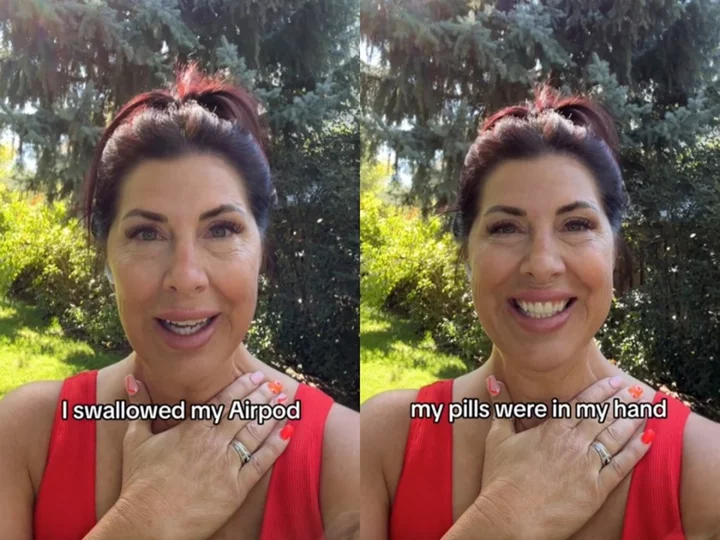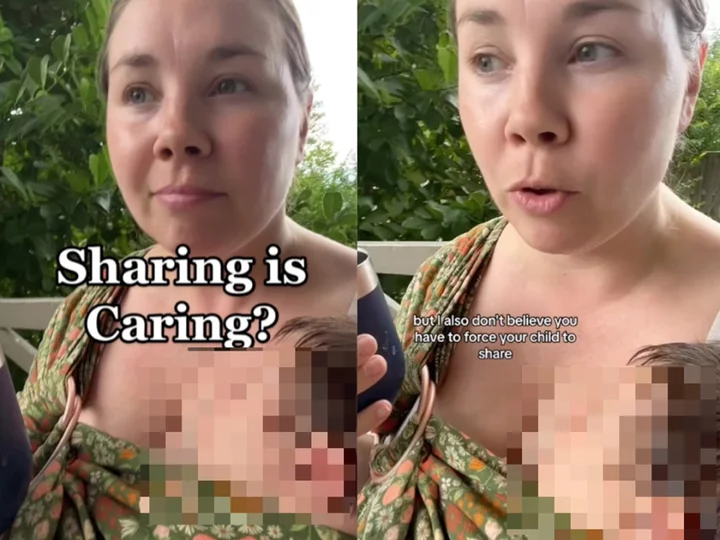More than one in 10 women and girls in the UK’s four nations has been a victim of online violence, new research has found. Online violence can includes abuse, unwanted sexual remarks, trolling, threats, and non-consensual sharing of intimate messages and photos. The online YouGov survey, said to be the biggest so far into the issue, found 17% of the women and girls surveyed in Wales and Scotland have experienced online violence, as well as 15% in England and 12% in Northern Ireland. Researchers from the Open University said the findings show the problem is “widespread”. The data came from the 7,500 people aged 16 and over – 4,000 women and girls and 3,5000 men and boys – earlier this year. It also highlighted that online violence was higher among for those aged 16-24 (25%) and for LGBT+ women and girls (35%). The most commonly perceived reasons for why people commit such online violence were the anonymity provided by being online (49%), ease of getting away with it (47%) and misogyny (43%). So what can you do if you’re a victim of online violence? Trolling According to the Crown Prosecution Service, trolling is “a form of baiting online which involves sending abusive and hurtful comments across all social media platforms”. Trolls can be found everywhere on the internet, including forums, blogs, websites and social networks. “Don’t respond,” said Ruth Peters, solicitor and director at criminal defence firm Olliers Solicitors. “Trolls are looking for a reaction. Their aim is to upset and provoke you into making an angry/emotional response. Whilst you can’t prevent a troll from targeting you, you can decide how you choose to react. If you choose not to respond to the abuse, trolls generally give up and go away.” If you are being bullied online or receiving abusive comments, Dr Angela Wilcock, a senior lecturer in criminology at University of Sunderland thinks it’s important to tell a family member or a close friend, so you don’t feel alone and have can their support. The Online Safety Bill (which is expected to be passed at the end of this year) to protect women and girls is key, said Wilcock, “along with education from a young age. Women are continually having to risk assess and protect themselves, but we are not dealing with the perpetrators”. She added: “If women and girls do experience online violence, they must tell someone and seek help immediately from specialist services. To make themselves safer, they can also ensure social media privacy settings are activated.” Don’t forget to record, report and block trolls too. Peters noted. “If someone makes an offensive post, take a screenshot or print the post so that you have proof of it if necessary. “Ask the website moderator, administrator or owner to intervene if the troll doesn’t stop. Most websites/social network platforms have strong anti-abuse policies and, in most cases, trolls are guilty of violating their terms and conditions so will have their accounts terminated. “It’s OK to block those whose behaviour makes you feel uncomfortable and blocking someone on social media is easy.” Threats and abusive communication Set out under the Communications Act 2003 and the Malicious Communications Act 1988, malicious communications can include cyberbullying, harassment online or homophobic, racist, transphobic or misogynistic hate speech. Under section 127 of the Communications Act 2003, it is an offence for someone to send a message that is grossly offensive or indecent, obscene or menacing character. “The message does not need to actually reach the intended victim – the act of sending the message is sufficient,” Peters said. “A ‘message’ will cover all forms of messaging so this can mean a text, email, Facebook message, an internet forum, Snapchat message or picture, etc. Any image or message which has been sent electronically will be covered by this act.” Glitch, a UK charity aiming to end online abuse and championing digital citizenship, with a specific focus on black women and marginalised people, published its 2023 Digital Misogynoir Report in July. The findings “illuminate the ways misogynoir shows up in online spaces; the way it spreads and intersects with other forms of white supremacy; and, most disappointingly, how it is still missed in content moderation by tech platforms”, according to founder and CEO, Seyi Akiwowo, “Tech companies must take responsibility for the ways their ‘build first, think later’ approach actively harms black women – online and offline. “And while the pressure we’ve been applying to the UK government has resulted in the welcome and necessary addition of women and girls to the Online Safety Bill, the government has a responsibility to hold tech companies to consistent account for the violence their platforms enable.” Non-consensual sharing of intimate photos and messages In April 2015, the Criminal Justice and Courts Act (CJCA) 2015 made ‘revenge porn’ a specific offence, and it became a crime to “disclose private sexual photographs and films; without the permission of the individual who appears in the photograph or film; with intent to cause distress”, Peters said. “[But] stronger regulation is also proposed surrounding the sharing of sexual images without consent.” The Online Safety Bill, currently progressing through the House of Lords, seeks to specifially criminalise similar offences to revenge porn. “These include sharing ‘deepfakes’ (explicit images which have been altered to look like someone) without consent,” Peters said. “Stronger regulation is also proposed surrounding the sharing of sexual images without consent. The current law requires intention to cause distress in order to be found guilty of this offence, [but] the proposed changes will amend this in order to prosecute more people.” She added: “There will be a ‘base offence’ for sharing intimate images without consent. There will be two more serious offences created if images are shared to cause humiliation, alarm or distress, or for sexual gratification.” But for Wilcock, “women shouldn’t have to ensure our profiles are closed off to the world just so that we don’t endure abuse from trolls and abusers. “It shouldn’t be this way, but that is the sad reality of today’s online world. Until we do more to hold perpetrators to account and deal with them appropriately, it is hard to see how it will get better for victims.” Read More Charity boss speaks out over ‘traumatic’ encounter with royal aide Ukraine war’s heaviest fight rages in east - follow live Athlete who ran over 200km through the desert shares advice for running in a heatwave Women being invited to help shape the future of reproductive healthcare – from period pain to menopause How to style your home like a professional
More than one in 10 women and girls in the UK’s four nations has been a victim of online violence, new research has found.
Online violence can includes abuse, unwanted sexual remarks, trolling, threats, and non-consensual sharing of intimate messages and photos.
The online YouGov survey, said to be the biggest so far into the issue, found 17% of the women and girls surveyed in Wales and Scotland have experienced online violence, as well as 15% in England and 12% in Northern Ireland.
Researchers from the Open University said the findings show the problem is “widespread”.
The data came from the 7,500 people aged 16 and over – 4,000 women and girls and 3,5000 men and boys – earlier this year.
It also highlighted that online violence was higher among for those aged 16-24 (25%) and for LGBT+ women and girls (35%).
The most commonly perceived reasons for why people commit such online violence were the anonymity provided by being online (49%), ease of getting away with it (47%) and misogyny (43%).
So what can you do if you’re a victim of online violence?
Trolling
According to the Crown Prosecution Service, trolling is “a form of baiting online which involves sending abusive and hurtful comments across all social media platforms”.
Trolls can be found everywhere on the internet, including forums, blogs, websites and social networks.
“Don’t respond,” said Ruth Peters, solicitor and director at criminal defence firm Olliers Solicitors. “Trolls are looking for a reaction. Their aim is to upset and provoke you into making an angry/emotional response. Whilst you can’t prevent a troll from targeting you, you can decide how you choose to react. If you choose not to respond to the abuse, trolls generally give up and go away.”
If you are being bullied online or receiving abusive comments, Dr Angela Wilcock, a senior lecturer in criminology at University of Sunderland thinks it’s important to tell a family member or a close friend, so you don’t feel alone and have can their support.
The Online Safety Bill (which is expected to be passed at the end of this year) to protect women and girls is key, said Wilcock, “along with education from a young age. Women are continually having to risk assess and protect themselves, but we are not dealing with the perpetrators”.
She added: “If women and girls do experience online violence, they must tell someone and seek help immediately from specialist services. To make themselves safer, they can also ensure social media privacy settings are activated.”
Don’t forget to record, report and block trolls too. Peters noted. “If someone makes an offensive post, take a screenshot or print the post so that you have proof of it if necessary.
“Ask the website moderator, administrator or owner to intervene if the troll doesn’t stop. Most websites/social network platforms have strong anti-abuse policies and, in most cases, trolls are guilty of violating their terms and conditions so will have their accounts terminated.
“It’s OK to block those whose behaviour makes you feel uncomfortable and blocking someone on social media is easy.”
Threats and abusive communication
Set out under the Communications Act 2003 and the Malicious Communications Act 1988, malicious communications can include cyberbullying, harassment online or homophobic, racist, transphobic or misogynistic hate speech.
Under section 127 of the Communications Act 2003, it is an offence for someone to send a message that is grossly offensive or indecent, obscene or menacing character.
“The message does not need to actually reach the intended victim – the act of sending the message is sufficient,” Peters said.
“A ‘message’ will cover all forms of messaging so this can mean a text, email, Facebook message, an internet forum, Snapchat message or picture, etc. Any image or message which has been sent electronically will be covered by this act.”
Glitch, a UK charity aiming to end online abuse and championing digital citizenship, with a specific focus on black women and marginalised people, published its 2023 Digital Misogynoir Report in July.
The findings “illuminate the ways misogynoir shows up in online spaces; the way it spreads and intersects with other forms of white supremacy; and, most disappointingly, how it is still missed in content moderation by tech platforms”, according to founder and CEO, Seyi Akiwowo,
“Tech companies must take responsibility for the ways their ‘build first, think later’ approach actively harms black women – online and offline.
“And while the pressure we’ve been applying to the UK government has resulted in the welcome and necessary addition of women and girls to the Online Safety Bill, the government has a responsibility to hold tech companies to consistent account for the violence their platforms enable.”
Non-consensual sharing of intimate photos and messages
In April 2015, the Criminal Justice and Courts Act (CJCA) 2015 made ‘revenge porn’ a specific offence, and it became a crime to “disclose private sexual photographs and films; without the permission of the individual who appears in the photograph or film; with intent to cause distress”, Peters said.
“[But] stronger regulation is also proposed surrounding the sharing of sexual images without consent.”
The Online Safety Bill, currently progressing through the House of Lords, seeks to specifially criminalise similar offences to revenge porn.
“These include sharing ‘deepfakes’ (explicit images which have been altered to look like someone) without consent,” Peters said.
“Stronger regulation is also proposed surrounding the sharing of sexual images without consent. The current law requires intention to cause distress in order to be found guilty of this offence, [but] the proposed changes will amend this in order to prosecute more people.”
She added: “There will be a ‘base offence’ for sharing intimate images without consent. There will be two more serious offences created if images are shared to cause humiliation, alarm or distress, or for sexual gratification.”
But for Wilcock, “women shouldn’t have to ensure our profiles are closed off to the world just so that we don’t endure abuse from trolls and abusers.
“It shouldn’t be this way, but that is the sad reality of today’s online world. Until we do more to hold perpetrators to account and deal with them appropriately, it is hard to see how it will get better for victims.”
Read More
Charity boss speaks out over ‘traumatic’ encounter with royal aide
Ukraine war’s heaviest fight rages in east - follow live
Athlete who ran over 200km through the desert shares advice for running in a heatwave
Women being invited to help shape the future of reproductive healthcare – from period pain to menopause
How to style your home like a professional









